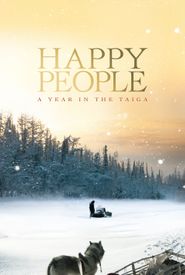Dmitry Vasyukov is a renowned Russian filmmaker and director, celebrated for his sweeping and reflective storytelling style, which masterfully intertwines Walden-like landscapes and ordinary lives with a commanding narrative. His films often focus on strong, self-sufficient individuals who find happiness by relying on their skills and connection to the land. Through his work, Vasyukov inspires audiences to believe in themselves and, by doing so, to endure more than they ever thought possible.
Vasyukov's impressive career began in the late 1990s with the creation, direction, and hosting of the popular TV show "Dialogues about Fishing", which aired on Russia's Main Federal Channel for five consecutive years.
In 2003, Vasyukov conceptualized the groundbreaking TV documentary "Happy People", which chronicles the year-long cycle of life in the remote Bakhta village, situated in the Siberian taiga, near the Yenissei River. The project ultimately consisted of four 52-minute parts, which garnered the prestigious Award at the Russian International Film Festival for Documentary Films, "ArtDocFest", as well as the esteemed TV Nomination "Laurel branch". Russian television giant, 'The First', subsequently acquired the rights to broadcast the series.
In 2010, renowned German director Werner Herzog became involved in the project, releasing a 90-minute international version titled "Happy People. A Year in the Taiga". This version received nominations at international film festivals in the USA, Italy, Japan, and other countries. The film was later released in cinemas across Europe in 2012 and in the USA in 2013. Discovery Channel also acquired the rights to the film in 2013.
Vasyukov's "Happy People" project continued with the production of a 2-series documentary, "Pomory", in collaboration with the Russian Geographical Society. Russian Channel 'The First' once again purchased the rights to broadcast the documentary.
In 2014, Vasyukov utilized crowdfunding to fund his third film, "Altai", which was initially released as a 4-series documentary and later developed into a cinema version titled "Another Life".



















